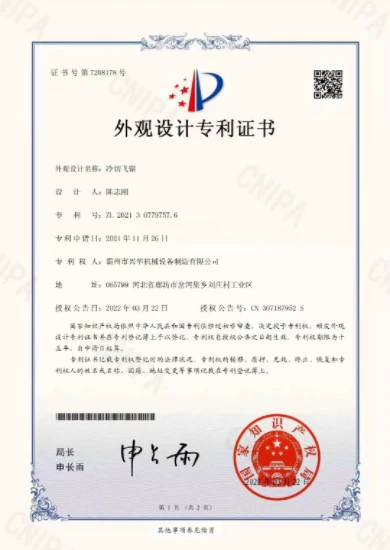roller pellet mill
Roller Pellet Mill An Efficient Solution for Biomass Pelleting
In recent years, biomass energy has emerged as a sustainable and renewable alternative to fossil fuels. As various industries look for greener solutions to meet energy demands, the need for efficient biomass processing equipment has grown significantly. Among the most vital of these tools is the roller pellet mill, a machine designed specifically for pelletizing biomass materials into high-density pellets suitable for energy generation, animal feed, and various other applications.
Understanding Roller Pellet Mills
A roller pellet mill operates by applying pressure to biomass materials, transforming them into pellets through a series of rollers and a die. The die is a cylindrical metal disk with holes of specific diameters, and as the biomass is forced through these holes under high pressure, it generates heat due to friction. This heat softens the lignin present in the materials, acting as a natural binder and allowing the biomass to form a rigid pellet structure once cooled.
One of the defining features of roller pellet mills is their design, which often includes two or more rollers that rotate around a stationary die. This innovative architecture efficiently channels the biomass through the die, producing uniform pellets with optimal density. The roller design minimizes energy consumption while maximizing output, making them a cost-effective option for both small-scale producers and large industrial facilities.
Advantages of Roller Pellet Mills
1. High Efficiency Roller pellet mills are engineered to produce a significant quantity of pellets with minimal energy use. The pressure and heat generated during the process ensure that the pellets are compact and consistent, allowing for better combustion efficiency when used as fuel.
2. Versatility These mills can handle various types of raw materials, including wood chips, sawdust, agricultural residues, and even organic waste. This versatility makes them ideal for different applications, from manufacturing animal feed to generating biomass fuel for heating and electricity.
roller pellet mill

3. Improved Pellet Quality The design of roller pellet mills allows for a better-quality pellet compared to other methods. Pellets produced are typically denser, which means they burn more efficiently and produce less ash, contributing to cleaner combustion and reduced emissions.
4. Lower Operational Costs The efficiency of roller pellet mills reduces fuel consumption, leading to lower operational costs. Additionally, the durability of these machines, due to high-quality materials used in construction, translates to lower maintenance costs over time.
5. Environmentally Friendly By converting waste materials into valuable energy sources, roller pellet mills play a vital role in promoting sustainable practices. They help reduce landfill waste and lower greenhouse gas emissions associated with traditional fossil fuels.
Applications of Roller Pellet Mills
Roller pellet mills are used across multiple industries, reflecting their versatility. In the energy sector, they are integral in producing biomass pellets for power generation plants, where they help provide a green alternative to coal and natural gas. The animal feed industry benefits from these mills by producing high-quality feed pellets that are easier to digest and store.
Additionally, these machines are essential in the manufacturing of wood pellets, which are widely used for residential heating and commercial biomass boilers. With increasing interest in renewable energy sources, the demand for roller pellet mills continues to rise.
Conclusion
As the world shifts towards more sustainable energy solutions, the roller pellet mill stands out as an innovative piece of machinery. Its ability to efficiently transform biomass into high-quality pellets makes it an essential component in both the energy and agricultural sectors. With continuous advancements in technology, we can expect roller pellet mills to become even more efficient and user-friendly, further supporting the global transition towards renewable energy sources. Investing in a roller pellet mill not only contributes to a cleaner environment but also opens new avenues for businesses aiming to capitalize on the growing demand for sustainable solutions.
-
High Frequency Straight Seam Welded Pipe Production Line|BzZhou Xinghua|Precision Welding&EfficiencyNewsJul.30,2025
-
High Frequency Straight Seam Welded Pipe Production Line - BzZhou Xinghua|Precision Engineering&EfficiencyNewsJul.30,2025
-
High-Frequency Straight Seam Welded Pipe Production Line-BzZhou Xinghua Machinery Equipment Manufacturing Co., LTD.NewsJul.30,2025
-
High-Frequency Straight Seam Welded Pipe Production Line-BzZhou Xinghua Machinery Equipment Manufacturing Co., LTD.|Precision Manufacturing, High EfficiencyNewsJul.30,2025
-
High Frequency Straight Seam Welded Pipe Production Line-BzZhou Xinghua Machinery Equipment Manufacturing Co., LTD.|Precision Steel Pipe Manufacturing&Industrial EfficiencyNewsJul.29,2025
-
High-Frequency Straight Seam Welded Pipe Production Line-BzZhou Xinghua Machinery Equipment Manufacturing Co., LTD.|Precision Steel Pipe Manufacturing&Industrial EfficiencyNewsJul.29,2025


